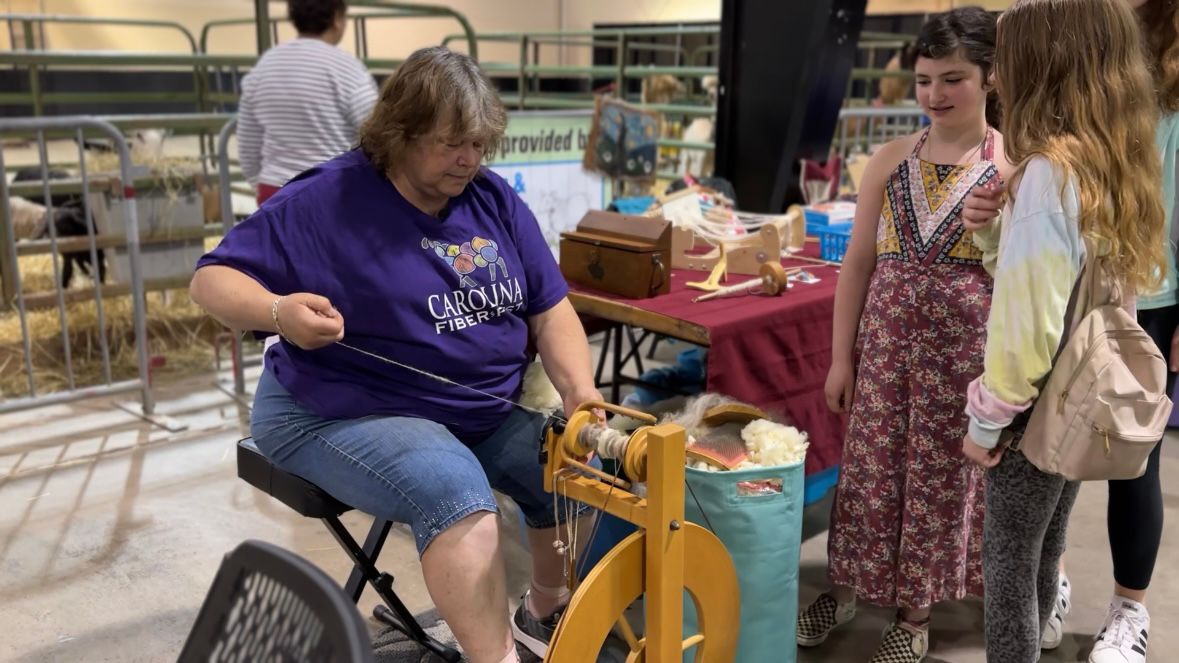RALEIGH, N.C. – Agriculture in North Carolina reached a record high for economic impact this year – breaking the $100 billion mark for the first time.
What You Need To Know
- Agriculture’s economic impact in North Carolina set a record high of $103.2 billion
- The Got to Be N.C. Festival features agriculture exhibits to educate and inform the public
- Sheep is a sector of the agriculture industry that’s growing
Agriculture Commissioner Steve Troxler announced the news at the opening of the Got to Be N.C. Festival on Friday. The figure includes North Carolina’s top producers like poultry and swine, but also the lesser-known corners of the agriculture world like sheep and wool production.

Alesia Moore has a herd of 40 sheep – contributing to the 30,000 head of sheep across the state. She runs the only fiber mill in North Carolina, processing a farmer’s sheared wool and turning it into yarn that then goes back to the same farmer it came from.
“My son wanted to show sheep, he was in 4-H. Being the good home-schooling mom, I had to learn what to do with the fiber,” Moore said. “Two sheep turned into about 40 sheep and then he went off to college and I had all the sheep and I didn't have anything to do. So I bought some equipment that was for sale in South Carolina, moved it up here and started a commercial mill.”
The 4-H program, Head, Heart, Hands and Health, is a youth development organization.

Sheep farming is growing in North Carolina, as is spinning and looming. Moore said many people just don’t know how much profit can be made off their wool.
“The farmers that raise them for meat, they throw it away or they'll sell it for just pennies on the pound,” Moore said. “If it's well cared for and good wool, nice wool, you can go $15-30 a pound and that's just raw off the sheep.”
At the festival, she’s demonstrating how to spin fresh wool and use it for something called fiber art.
“This is nothing but wool, solid wool, and the more you needle it, the more dense it becomes,” Moore said. “Cookie cutters are a really good way to get started because then you don't have to think of the shape.”
According to Troxler, 20% of the state’s workforce is currently employed in agriculture and last year’s economic impact was nearly $93 billion dollars. This year’s numbers reflect an 11% increase as people like Moore continue to grow the leading industry in our state.










